
Bo Bichette’s free-agent value has undergone a major shift, and the perception of his market from league executives has changed dramatically in only a short period of time. What once looked like a competitive market for one of the best offensive shortstops in baseball has grown into something even more intense and wide-reaching. The difference now isn’t just how many teams are watching him, but who those teams are.
Clubs that previously seemed like non-factors—because their shortstop situations appeared locked in—are suddenly re-evaluating their position. Bichette’s willingness to play second base, a development that became clear when he returned during the World Series and played on a compromised leg, has opened doors that weren’t previously available to him.
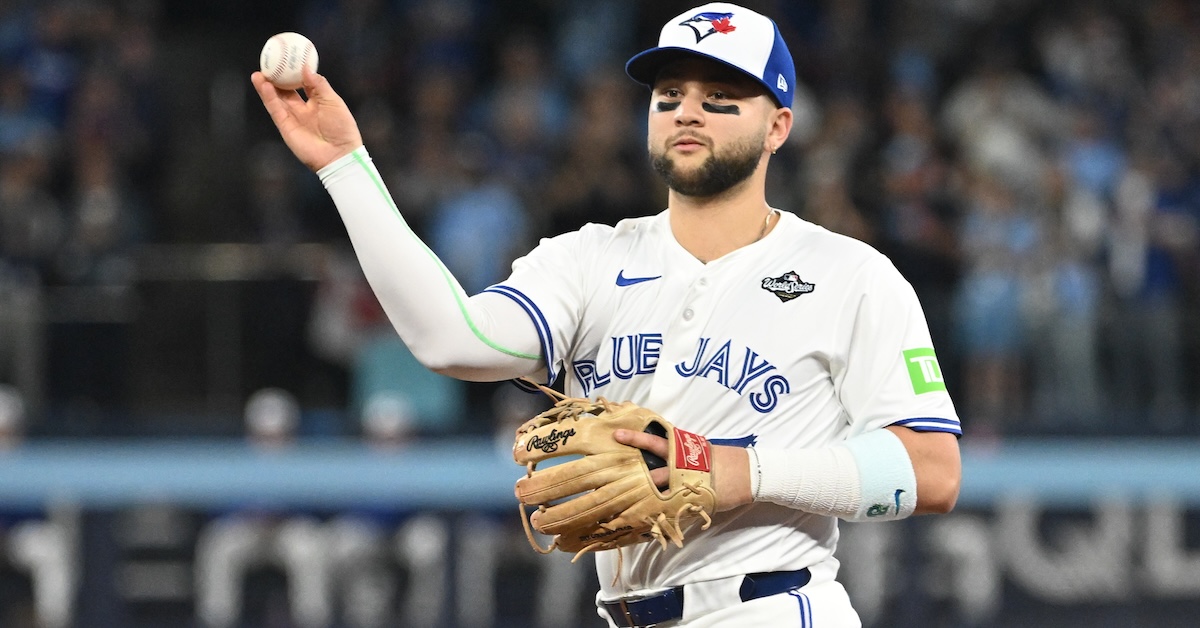
Before that postseason appearance, most executives assumed that acquiring Bichette meant committing to him as a full-time shortstop. Some teams, especially those already satisfied with their current shortstop situation, simply crossed themselves off the list. But Bichette’s acceptance of second-base reps changed the equation.
His positional flexibility created new pathways for teams that lacked a shortstop vacancy but desperately needed another high-end hitter. The impact on his market has been immediate and significant—several front offices now view him as a solution, regardless of whether they want him at short or second. The industry chatter this week reflects a shift from asking which team needs a shortstop to which team needs a major bat who can slide into the middle infield.
More: Red Sox Officially Lose Top Pitcher To Free Agency
Because of that, the pool of realistic suitors is much larger today than it was even a week ago. If Bichette decides not to return to Toronto—and at this point, the assumption across the league is that he will at least explore all opportunities—there are several franchises that make perfect baseball and financial sense for him.
Seattle Mariners
Seattle immediately jumps into the conversation as perhaps the best fit for Bichette. The Mariners have a competitive roster built heavily around run prevention. Their identity centers on elite pitching and strong defense, but their offense has frequently been inconsistent, streaky, and overly dependent on power hitting.

What they lack is a steady, reliable presence in the heart of the lineup—someone who reaches base consistently, makes quality contact, and can be depended on in situations where putting the ball in play is more important than swinging for extra bases.
Bichette checks every one of those boxes. Even more importantly, Seattle already has an established shortstop in J.P. Crawford, whose defense, leadership, and on-base ability are central to their lineup structure. Before Bichette showed he would play second base, matching him with Crawford would have been difficult. Now, placing Bichette at second base creates a clean fit with very little roster reshuffling required. His hitting profile raises Seattle’s offensive floor significantly, smoothing out the feast-or-famine nature of their lineup.
More: Angels-Tigers blockbuster trade get Tarik Skubal, Dillon Dingler in 9-player deal
MLB Network insider Jon Paul Morosi specifically highlighted Seattle as a team to watch, noting that Bichette’s willingness to move off shortstop could make him a high-priority target for the Mariners. For a team that missed out on several offensive trade targets last offseason, this might be their chance to finally land the impact hitter they have been searching for.
New York Yankees
The Yankees’ situation is a different kind of opportunity. Anthony Volpe, their young shortstop, underwent shoulder surgery, and while the team believes he will return strong, his timeline and immediate readiness are not guaranteed. The Yankees have shown repeatedly that they are not afraid to rearrange positional assignments when a premium bat becomes available. They did it when they moved Gleyber Torres to second base. They entertained similar discussions when stars like Manny Machado and Corey Seager were linked to them in the past.
Adding Bichette gives the Yankees flexibility in multiple years. He could begin at shortstop while Volpe recovers and, as the roster evolves, shift to second base or even serve as a high-impact bat who moves around depending on the lineup configuration. New York has another incentive: signing Bichette means weakening the Blue Jays, a divisional rival, while simultaneously strengthening their own roster.
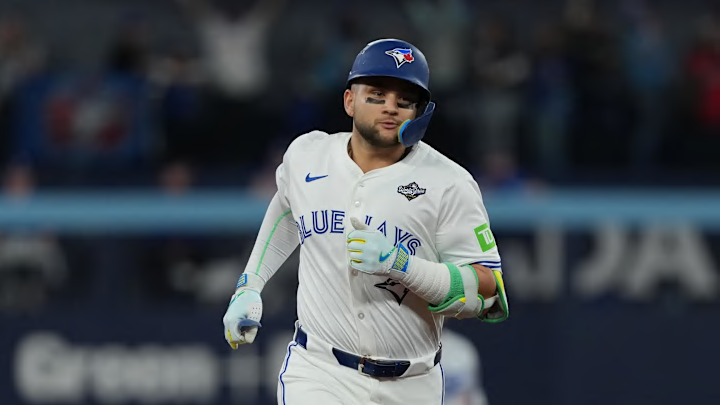
The Yankees operate under the philosophy that if a player can make the team’s lineup more dangerous, they will find a position for him. Bichette represents the type of player that fits this organizational attitude—a star bat, still in his prime, with postseason experience and a proven record of producing in huge markets. For a club committed to competing every year and never hesitant to spend money when the upgrade is substantial, the appeal is obvious.
Los Angeles Dodgers
Few organizations value flexibility as much as the Dodgers. They are known for building rosters that can shift and adapt based on performance, matchups, or injury. Mookie Betts’ time at shortstop last season was a perfect example of that philosophy—Los Angeles uses its elite athletes in creative ways to maximize value and maintain optionality.
More: Orioles Officially Lose Top Utilityman to Free Agency
With Bichette, the Dodgers have several possible alignments. Betts could slide to second base full-time or return to the outfield, opening shortstop for Bichette. Alternatively, the Dodgers could rotate him at second if they prefer Betts at short in specific matchups. The presence of Tommy Edman—another versatile player who can play virtually anywhere—gives the Dodgers even more lineup flexibility.

This scenario becomes even more compelling if the Dodgers miss out on Kyle Tucker, another star they have been linked to. In that case, Bichette provides a star-level offensive injection and solves multiple needs at once. With one move, they would add stability to the infield, increase overall lineup contact, and plug another run-producing bat into the middle of the order.
San Francisco Giants
Unlike some of the other suitors, the Giants have a very clear positional opening: they need a full-time second baseman. Their infield already includes Willy Adames at shortstop and Matt Chapman at third base, leaving second base as the obvious landing spot for Bichette.
More: Ha-Seong Kim sign $16 million one-year deal with the Braves
San Francisco’s offense last season suffered from inconsistency and a lack of sustained production from the middle infield. Bichette’s high batting average and low strikeout rate would immediately change their lineup dynamic. He would bring stability and balance to a team that has often struggled to string hits together. The Giants’ front office has demonstrated a willingness to be aggressive in pursuit of impact players, and after a .500 season that fell below expectations, the urgency is higher than ever.

With Bichette in the mix, San Francisco would be able to construct an elite defensive infield around him, mitigating some of the concerns regarding his defensive metrics. The presence of Chapman and Adames gives the Giants the ability to hide some of Bichette’s defensive limitations while maximizing his elite offensive capabilities.
Detroit Tigers
The Tigers remain a dark-horse candidate, but the logic behind their potential pursuit is strong. Detroit has openings at both second base and shortstop, and the organization lacks a proven, middle-order offensive presence. Trey Sweeney struggled in 2025, and the club’s second-base situation remains unsettled. Adding a player like Bichette would raise the overall offensive ceiling and immediately change expectations for the season.
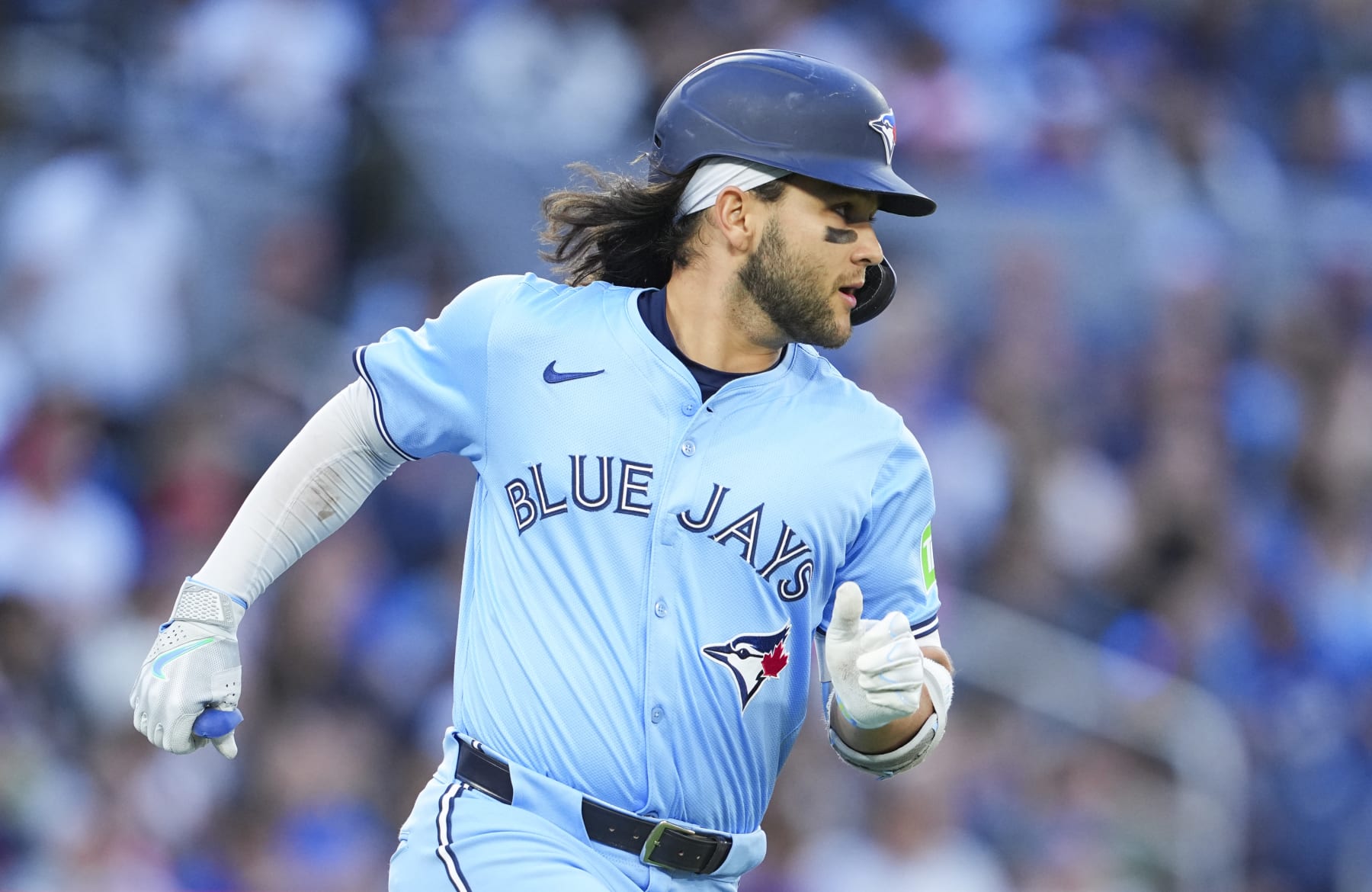
Detroit has been building patiently, banking on internal development to elevate them into contention. But every rebuild reaches a point where adding a major free agent becomes necessary—not just to win more games, but to signal to fans and players that the organization is serious about competing. If the Tigers choose not to acquire a star via trade, signing Bichette fulfills that need without giving up young pitching.
Contract Value and Statistical Backdrop
No matter where Bichette ends up, he has positioned himself to receive a major contract. League evaluators expect him to land a deal somewhere between the high-$100 million and low-$200 million range. His 2025 performance justifies that projection: he posted a .311 batting average, a .357 on-base percentage, and a .483 slugging percentage, good for a 134 wRC+ and 3.8 fWAR. The advanced metrics support his production as well—an average exit velocity of 91 mph and a 49% hard-hit rate indicate sustainable contact quality.

Defensively, Bichette has been the subject of scrutiny. His results at shortstop graded poorly, reflected in a –13 Outs Above Average ranking. But his postseason appearance at second base demonstrated that he is both capable and open-minded about moving positions. For many interested teams, the defensive question becomes irrelevant if they view him primarily as a bat-first acquisition.
The Turning Point
Bichette’s openness to changing positions has completely reshaped the narrative surrounding him. Instead of being a player who only fits on teams searching for a full-time shortstop, he has become a plug-and-play option for numerous contenders. Teams can now imagine him as a second baseman, a shortstop, or even a hybrid option while injuries heal or rosters transition. That flexibility is the difference between a limited market and a massive one.
In short, Bichette went from being a positional fit to being a lineup fit—and that change has dramatically expanded the list of clubs that can justify pursuing him.
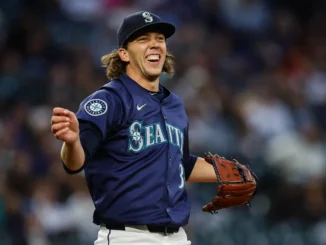
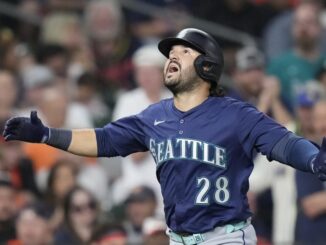
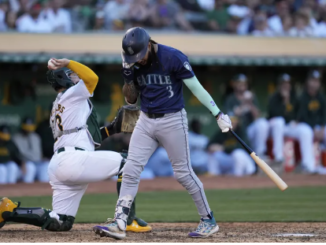
Be the first to comment